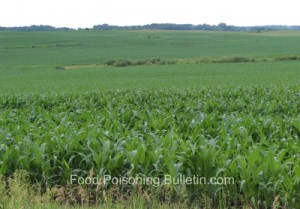A coalition of groups, including Food & Water Watch, Natural Resources Defense Council (NRDC), and Friends of the Earth are using the World Health Organization (WHO) to set safety standard for the herbicide glyphosate, found in RoundUp and other chemicals, that has been classified as carcinogenic.
 In a letter to the WHO, the coalition raised concerns about conflicts of interest on an expert advisory panel that could review the cancer classification. Three of the eight panel members have “financial and professional ties to the chemical industry, including Monsanto, the largest producer of glyphosate,” according to Food & Water Watch.
In a letter to the WHO, the coalition raised concerns about conflicts of interest on an expert advisory panel that could review the cancer classification. Three of the eight panel members have “financial and professional ties to the chemical industry, including Monsanto, the largest producer of glyphosate,” according to Food & Water Watch.
NRDC Health Program Director Erik Olson said in a statement, “The WHO is highly respected for protecting public health around the world,d and it should move forward immediately to safeguard people from being harmed by glyphosate. At the same time, the WHO should make absolutely sure that its expert review panel is free of conflicts of interest so it can make science-based evaluations of herbicide and pesticide residues on food and advise what levels are safe for people to be exposed to.”
The International Agency for Research on Cancer (IARC), an arm of the WHO, classified glyphosate, along with the chemicals malathion and diazinon as “probably carcinogenic to humans.” The net step is for that finding to be evaluated by the Joint FAO-WHO Meeting on Pesticide Residues (JMPR).
The letter states that “JMPR should not attempt to re-do IARC’s work. The Joint FAO/WHO Meeting on Pesticide Residues is not in a position to conduct a credible, independent review of whether or not glyphosate, or any other pesticide, is a risk for cancer. Instead, the JMPR is charged with conducted quantitative assessments of health risks posed by pesticide residues in food. This should be done in light of the cancer evaluation done by IARS, and not by re-doing or undermining IARC’s determination.”
The group has “significant concerns that the committee will be unduly influences by the overall pesticide industry and particularly Monsanto – the largest producer of glyphosate in the world,” according to the letter. The letter ends by stating that WHO should conduct a thorough investigation of the proposed JMPR experts to ensure that there are no potential conflicts of interest; WHO should remove any candidates with potential conflicts; and WHO and JMPR should consider that their mission is not to challenge the IARC’s cancer classification, but to use that information to set safety standards.




